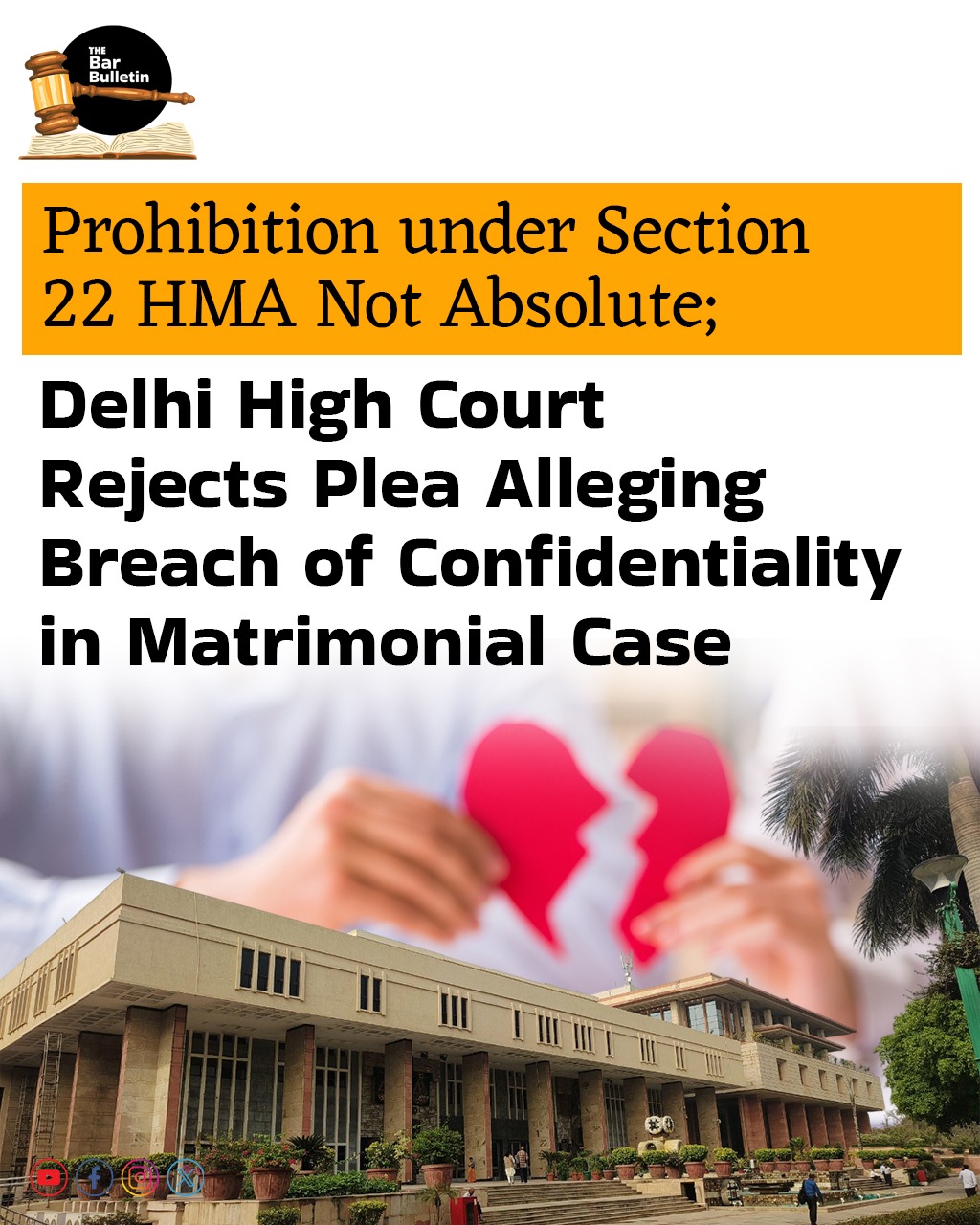The Delhi High Court has dismissed an appeal filed by a husband under Section 28 of the Hindu Marriage Act, 1955 read with Section 19 of the Family Courts Act, 1984 challenging the order passed by the learned Judge, Family Court, seeking injunctive relief against his wife, her brother, and her employer from disseminating or disclosing details of the matrimonial litigation and related custody proceedings. The Court observed that no case was made out for grant of any injunction and that the wife and others were not engaging in prohibited publication, but were availing their legal right to defend themselves in collateral proceedings, where reference to the matrimonial litigation was material and relevant.
The Division bench comprising Justice Anil Kshetarpal and Justice Harish Vaidyanathan Shankar affirmed that the prohibition under Section 22 of the HMA is not absolute in scope and that it prohibits making such material publicly available through print or any other form of media. They further observed that the disclosures allegedly made by the wife were not made to the public or in the press, but in specific legal and administrative contexts in response to complaints initiated by the husband himself.
The case arose from a marriage solemnized in 2006, with a daughter born in 2013. Following matrimonial discord, the wife filed for dissolution of marriage. During the pendency of those proceedings, the husband filed four applications under Section 22 of the HMA, alleging that his wife, her brother, and employer had disclosed confidential matrimonial details to third parties. The Family Court dismissed all applications, leading to this appeal.
The husband contended that the learned Family Court failed to consider that the statutory scheme under Section 22 of the HMA is intended to preserve the sanctity and confidentiality of matrimonial disputes and a narrow construction of the expression “publication” defeats the legislative intent. He further submitted that such disclosures were made to the wife’s employer, who subsequently referred to them in a civil suit pending before this Court, and to authorities and institutions such as police officials, schools attended by the minor child, and also formed part of a complaint filed under the POCSO Act. He also argued that the learned Family Court placed undue reliance on the wife’s claim of a “right to fair trial” without assessing whether the disclosures were necessary or proportionate, especially given the wife’s alleged conduct of sharing court documents with her employer and other authorities without the Court’s permission.
Accordingly, the Court rejected the husband’s claim and held that the learned Family Court had correctly appreciated the factual matrix and had arrived at a reasoned conclusion that no case was made out for grant of any injunction, much less one contemplated under Section 22 of the HMA. As far as the disclosure is concerned, the Court further viewed that permitting such references in a bona fide legal defence, especially when occasioned by the husband’s own actions, cannot be construed as a violation of confidentiality. Having found no merit in the Appeal, the Court therefore dismissed the present appeal.
Appearances:
Appellant: In person
Respondent: None



